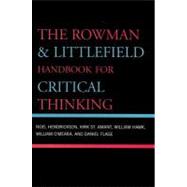
| Introduction | p. ix |
| Word Hazards: Statements, Ambiguity, and Vagueness | p. 1 |
| A Logical Digression: Propositional Attitudes | p. 2 |
| Complex Passages: Descriptions, Explanations, and Arguments | p. 5 |
| Odd Words | p. 6 |
| A Logical Digression: How Not to Distinguish Induction from Deduction, or Why the Valid/Inductive Distinction Is Better | p. 8 |
| Finding Arguments | p. 13 |
| Grounding Statements in Fact: Observation, Testimony, and Other Arguments Based on Criteria | p. 17 |
| Criteria for Evaluating Observation Statements | p. 17 |
| Criteria for Evaluating Testimony | p. 18 |
| Deduction: Categorical Syllogisms | p. 21 |
| Conversion, Obversion, Contraposition | p. 22 |
| Categorical Syllogisms | p. 24 |
| A Logical Digression: Venn Diagrams | p. 27 |
| A Logical Digression: Conditional Validity | p. 33 |
| Odd Words | p. 35 |
| Enthymemes | p. 36 |
| Arguments Based on Propositions | p. 39 |
| Statement Forms | p. 39 |
| A Logical Digression: Symbols and Truth Table Definitions | p. 40 |
| Argument Forms | p. 41 |
| A Logical Digression: Truth Tables for Testing the Validity of Arguments | p. 43 |
| Odd Words: Tautology, Contradiction, Contingent Statement | p. 47 |
| Logical Equivalences | p. 49 |
| A Logical Digression: Demonstrating the Equivalences with Truth Tables | p. 51 |
| Probability Calculations | p. 57 |
| Theories of Probability | p. 57 |
| Odd Words: Relative Frequency and Subjective Theories | p. 58 |
| Rules of Probability | p. 59 |
| Generalizations and Particularizations | p. 65 |
| Generalization Arguments | p. 65 |
| A Logical Digression: Surveys and Opinion Polls | p. 68 |
| Particularization Arguments | p. 68 |
| Analogical Arguments | p. 71 |
| Analogical Arguments | p. 71 |
| A Logical Digression: Analogical Arguments versus Generalization and Particularization Arguments | p. 74 |
| Evaluating Hypotheses: Inference to Best Explanation | p. 75 |
| Likelihood | p. 76 |
| Explanatory Power | p. 78 |
| Simplicity | p. 78 |
| Novelty | p. 79 |
| Appropriate Explanatory Content | p. 80 |
| Summary of Factors in Evaluating Explanatory Inferences | p. 80 |
| Explanatory Inferences, Confirmation, Disconfirmation, and Bayes's Theorem | p. 81 |
| Causal Inferences | p. 85 |
| Mill's Methods of Causal Inference | p. 85 |
| Probabilistic Method of Causal Inference | p. 88 |
| Counterfactual Method of Causal Inference | p. 89 |
| Counterfactual Reasoning | p. 91 |
| Supporting Counterfactual Claims | p. 91 |
| A Logical Digression: Counterfactual Fallacies | p. 94 |
| Decisions under Risk | p. 97 |
| Utility | p. 98 |
| Decision Making under Risk with One Factor | p. 98 |
| Decision Making under Risk with Multiple Factors | p. 99 |
| Decisions under Uncertainty | p. 103 |
| Universal Principles for Decisions under Uncertainty | p. 104 |
| Further Principles for Decisions under Multilateral Uncertainty | p. 105 |
| Further Principles for Decisions under Unilateral Uncertainty | p. 108 |
| Informal Fallacies | p. 111 |
| Fallacies of Ambiguity | p. 111 |
| Fallacies of Relevance | p. 114 |
| Fallacies of Presumption | p. 120 |
| Fallacies of Weak Induction | p. 122 |
| Critical Writing: An Audience-Centered Approach to Critical Thinking | p. 127 |
| Examining Critical Writing: A Rhetorical Approach | p. 128 |
| Selecting the Appropriate Forum | p. 129 |
| Establishing Presentation Objectives | p. 132 |
| Establishing Initial Credibility | p. 134 |
| Screening Content for Inclusion | p. 136 |
| Considering Sources of Information | p. 137 |
| Identifying Content Areas | p. 138 |
| Grouping Information for Readers | p. 140 |
| Organizing Information within the Forum | p. 142 |
| Externalizing Ideas: A Final Perspective | p. 146 |
| Bibliography | p. 147 |
| Index | p. 149 |
| About the Authors | p. 155 |
| Table of Contents provided by Ingram. All Rights Reserved. |
The New copy of this book will include any supplemental materials advertised. Please check the title of the book to determine if it should include any access cards, study guides, lab manuals, CDs, etc.
The Used, Rental and eBook copies of this book are not guaranteed to include any supplemental materials. Typically, only the book itself is included. This is true even if the title states it includes any access cards, study guides, lab manuals, CDs, etc.